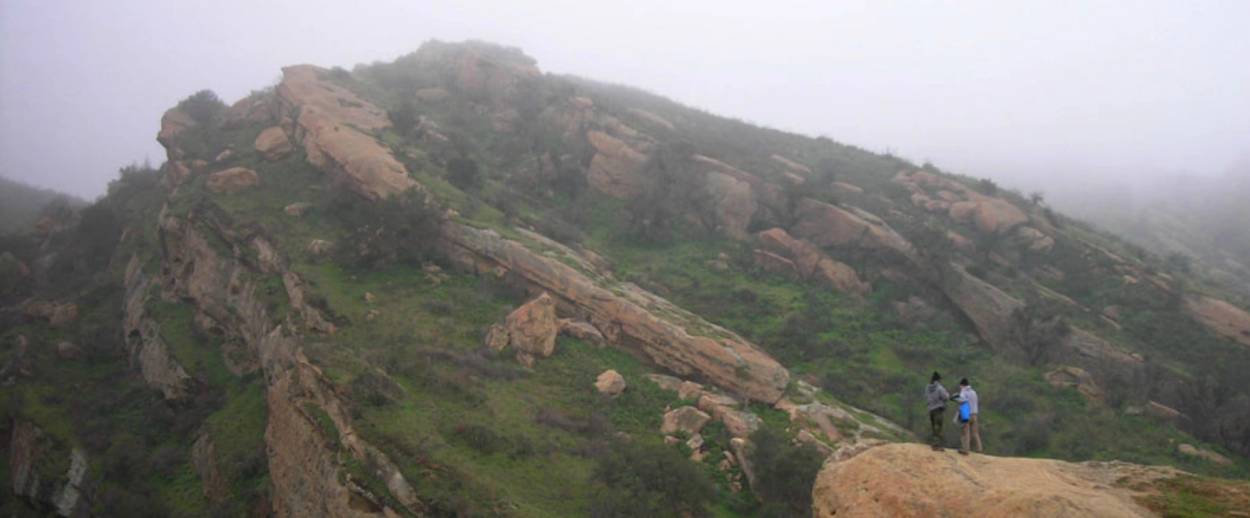Report: An American Jewish University Campus in Los Angeles May Have Been Exposed to Radiation For Decades
University president refutes investigation from local NBC news team




A local news station in Los Angeles has published a year-long investigation about a possible cover-up scandal involving nuclear waste miles from a sleepaway camp and retreat space for young adults, where they may have been exposed to radiation and other hazardous materials over the last 65 years. The story, which aired on NBC Los Angeles on Monday, claims that top officials at the Brandeis-Bardin Institute (BBI) of American Jewish University in Simi Valley, California, a world renowned center for Jewish learning, which runs Camp Alonim, had knowledge of these toxic chemicals, citing interviews with former members of the board.
Camp Alonim rests on a part of the AJU’s 2,800-acre campus, the largest swath of land owned by a Jewish institution outside of Israel, according to its website. But right next door to this property is the Santa Susana Field Laboratory (SSFL), which, since the 1950s, has operated as a site for rocket-testing and nuclear experimentation. NBC Los Angeles reported that the lab disposed nuclear waste via illegal methods (barrel burning) for years, and in 1959, a nuclear reactor experienced a partial meltdown, believed to be the worst radioactive disaster in U.S. history. Regardless, the lab continued to operate up until 2007, putting surrounding areas at risk and potentially exposing many generations of campers to radiation. An estimated “thousands” live within two miles of SSFL, and half a million within 10 miles. NBC Los Angeles reported:
In December 1995, Brandeis-Bardin sued the owner of the Field Lab at the time (Rocketdyne), alleging that “hazardous materials” from Santa Susana, including radioactive elements, have “seeped into… the soil and groundwater” of Brandeis. In May 1997, Brandeis settled that suit for $3.2 million and agreed never again to sue Boeing (the current owner of the Field Lab). Six years later, the California Department of Toxic Substance Control found the chemical perchlorate, often used in rocket testing, in a well on the Brandeis property at levels exceeding California’s drinking water standards.
During the NBC investigation, which was helmed by “I-Team” journalist Joel Grover, who attended Camp Alonim forty years ago, and producer Matthew Glasser, American Jewish University wasn’t cooperative enough, the report claimed:
A Brandeis spokesman, Rabbi Jay Strear, told the I-Team that BBI routinely tests its groundwater and soil and believes “the site is safe.” NBC4 asked to see all of their environmental tests conducted during the Institute’s 68-year history, but were only given tests from 1996, 2006, 2007, 2009, 2011, 2012, 2013 and 2014 that were limited in where and what was tested.
Brandeis, however, says the contamination levels posed no threat to their campers. Although the Institute refused to sit-down with Grover, Dr. Robert Wexler, president of American Jewish University posted a statement on the AJU website, referring to NBC’s investigation as a “malicious report” and deeming as “deeply flawed and misleading”:
In their most recent broadcast, KNBC suggested strongly that AJU, and the prior managers of Brandeis-Bardin, sought to conceal evidence that our property is contaminated. Of course, nothing could be further from the truth…
Decades ago at the SSFL, tests were conducted on rocket engines. As a result, there was some soil contamination on their property from the rocket fuel. They also experienced a nuclear accident in 1959 that released contaminants into the air.
Some of the contamination from the rocket engines did cross into land previously owned by Brandeis-Bardin. This affected a tiny fraction of our property, in an inaccessible area not used by visitors, far away from the developed center of the campus. Ultimately, the owners of SSFL acquired that small contaminated piece of land from us plus a 100 acre “buffer zone.” SSFL then undertook the responsibility to clean it up.
For many, many years we (and those who managed BBC before us) have conducted frequent tests to confirm that the soil and water on our campus are clean. All of the test results have indicated BBC has been and continues to be absolutely safe. Even the ground water on our campus is safe to drink, although we do not use it for that purpose, since we get our water from the Calleguas Water District which supplies water to Simi Valley. Just to reiterate, there is absolutely no concern about the safety of BBC. Furthermore, the reporter from KNBC is well aware of these facts.
Editor-in-Chief of the Los Angeles publication Jewish Journal, Rob Eshman responded to NBC Los Angeles’ exposé. Three years prior, Eshman hoped to publish an article after a study “showed increased rates of cancer in neighborhoods close to the Simi Valley site,” an unsuccessful feat which he called “the most frustrating experience” of his Jewish Journal career. “There may once have been some very good reasons for not releasing all the information AJU has on BBI, but AJU’s lack of transparency is hurting, rather than helping, the community,” he wrote.
Read NBC4’s entire account, including AJU’s full annotated statement, here.
Tess Cutler is an intern at Tablet.